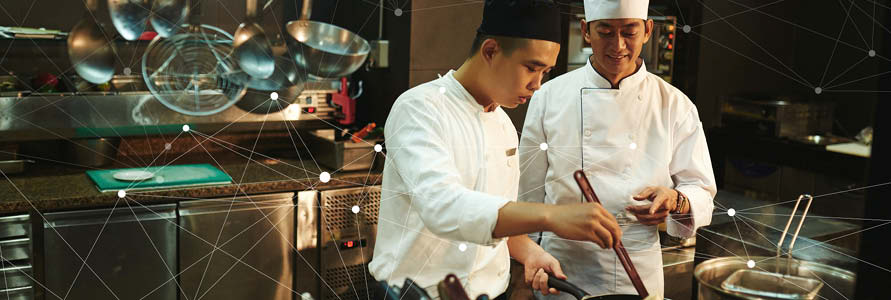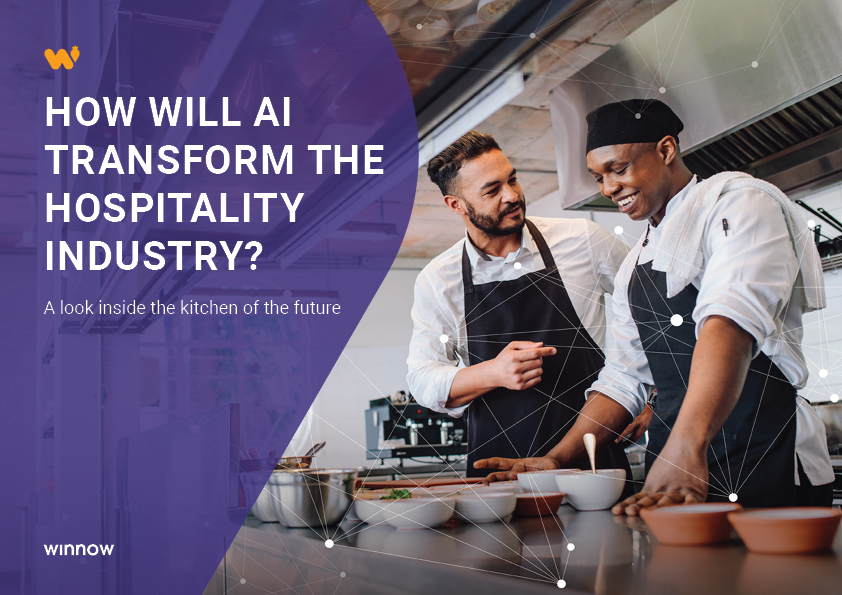Is artificial intelligence (AI) used in your hospitality business? For many people, AI is an exciting notion but can be intimidating and unknown. Compared to other industries, hospitality has adopted AI slowly. As a result, the benefits of AI for hospitality businesses and the level of technical expertise required for success remain unclear.
In general, there appears to be a gap between the excitement around AI and the preparedness of companies to adopt it. Research done by PWC in 2017 states that less than 40% of global CEOs are considering the impact of AI on their future skills needs.
This represents a huge missed financial opportunity for hospitality companies. McKinsey estimate that AI has the potential to deliver additional economic activity of around $13 trillion by 2030. Companies that can harness this value are likely to benefit disproportionately.
To help companies to understand the potential of AI and how it will impact the industry in the years ahead, a new report explores some of the cutting-edge technologies shaping our industry.
Prominent voices in the fields of AI and hospitality fields reveal how AI can improve efficiency, cut costs in the kitchen, and enhance the customer experience. Contributors include IKEA, the World Resources Institute (WRI), Emaar Hospitality Group and Russell Partnership Technology.
AI to increase profitability in hospitality
Adopting AI is a no brainer for the hospitality industry because margins are tight and overheads are high. Implementing technology that optimises key resources like food, water, and energy is a great place to start.
For the larger hospitality operations that spread across thousands of locations all over the globe, the additional efficiency that is possible with AI will have a transformative impact on margins.
Hospitality businesses can run more efficiently as time-consuming (and often mundane) tasks are performed by machines trained to perform specific tasks.
With enough data, AI increase accuracy and precision. They are highly specialized in the task they are performing and improve as the volume of data increases. This guide suggests that this is not something we should be afraid of. Instead, AI will supply us with higher quality insight to improve how we operate
Cutting food waste with AI
For the first time in the hospitality industry, food waste AI has launched in the commercial kitchen at scale. Winnow’s breakthrough product offers a pathway to automate a task that has been a high cost and a constant operational difficulty for hospitality businesses all around the globe.
Leading this charge is renowned retail giant and sustainable leader IKEA. They have deployed Winnow Vision all across the UK and Ireland, cutting food waste by value by over 50%.
This case study tracks how IKEA’s progressive outlook on new technology engages the team and customers, saves money, and provides a blueprint for other businesses to follow.
If you’re a hospitality professional interested in digital transformation, download this complimentary guide today and hear from industry leaders on how AI can transform your business today.
With thanks to our contributors for sharing their expertise:
- Chris Newman, COO of Emaar Hospitality Group
- Lorena Lourido, Country Food Manager for UK & Ireland at IKEA
- Dr. Liz Goodwin, Senior Fellow and Director, Food Loss and Waste at WRI
- Peter Russell, Operations Director of Russell Partnership Technology (RPT)










Comment on my blog